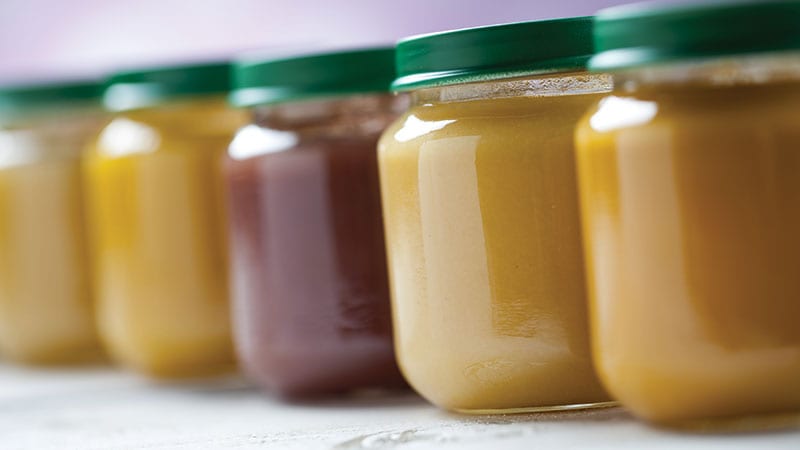Policy Report: Taking action on heavy metals and baby food
By Aimee Simpson
This article was originally published in May 2021

Parents of young children have plenty of inescapable concerns, but the safety of baby food should not be one of them. Unfortunately, a recent congressional report examining heavy metal levels in popular baby food brands showed troubling results. PCC is taking immediate steps in response to phase out certain baby food products and provide alternate options for our customers (see below for details).
The report by the Subcommittee on Economic and Consumer Policy Reform for the U.S. House of Representatives focused on inorganic arsenic, lead, cadmium and mercury. The subcommittee reviewed internal information requested from major food brands for both conventional and organic brands (Earth’s Best Organic and Happy BABY included) on heavy metal testing protocols and results from internal ingredient and product testing.
The report found that across the board baby food brands applied inconsistent testing protocols. For example, not every brand conducted tests, adhered to their internal testing limits or tested end-products. Additionally, every brand that submitted information had at least some products tainted with dangerous levels of heavy metals. Of particular concern were rice-based products. Brands that didn’t provide the subcommittee with information also received criticism for lack of transparency, although Plum Organics (one of the brands criticized for lack of cooperation) has objected to those assertions.
To individuals and organizations who have tracked this issue over the years, the report’s findings were disturbing, yet unsurprising.
Independent studies from organizations such as Consumer Reports have called attention to this issue for years and repeatedly called for federal regulations setting protective safety limits on heavy metals in baby foods. These groups and other advocates, including PCC, have also called on baby food manufacturers to implement their own safety standards in the absence of official regulations.
PCC has advocated for improved safety standards on heavy metals for over a decade but has also struggled with how best to tackle this complicated issue. There is no general consensus on what constitutes safe levels of heavy metals and the difficult reality is that many of them occur naturally in soils and water. Of course, their presence has been increased by legacy pesticides, industrial pollution and some current pesticide use—contributors we seek to avoid by supporting organic farming. But as the report notes, current organic regulations alone cannot solve the issue or the potential dangers heavy metals pose to children and infants.
PCC has continued to push forward on gathering information and assessing potential solutions. In 2018 PCC surveyed its baby food producers concerning lead testing. Wanting to continue providing safer options to our consumers, PCC began identifying Clean Label Project brands, such as Serenity Kids, and adding them to our shelves.
In the face of the most recent report, we have determined we must do more. Effective immediately, PCC will begin to phase out rice-based baby-food products that are identified in the subcommittee’s report as containing dangerous levels of heavy metals. We are also increasing our supply of Clean Label Project awarded producers; look for new options in our stores including Cerebelly, Fresh Bellies and Once Upon a Farm. Finally, working with our partners at National Co-op Grocers (NCG), we will continue to evaluate baby food brand progress on meeting the recommendations of the Congressional report and consider additional internal PCC standards.
Legal updates may affect the situation as well. The Baby Food Safety Act of 2021 was introduced in Congress in response to the report, and if passed would add new regulations to the industry. Additionally, the Food and Drug Administration has announced it will put a plan in action soon “aimed at reducing toxic elements in food for babies and young children to levels as low as is reasonably achievable.”
We will continue to provide updates on this important topic in future PCC Advocates and Sound Consumer articles, so be sure to sign up for emails here.
Aimee Simpson, JD, is PCC’s director of advocacy and product sustainability.
